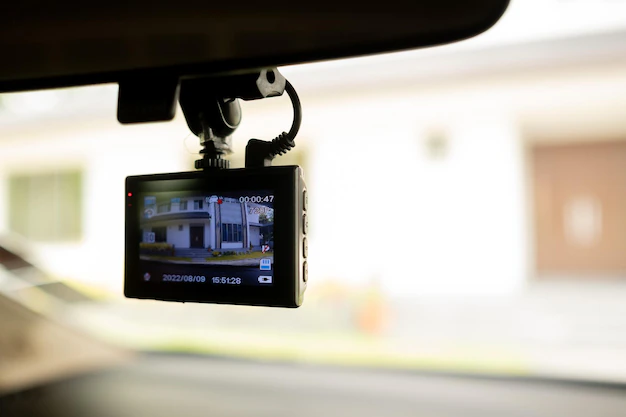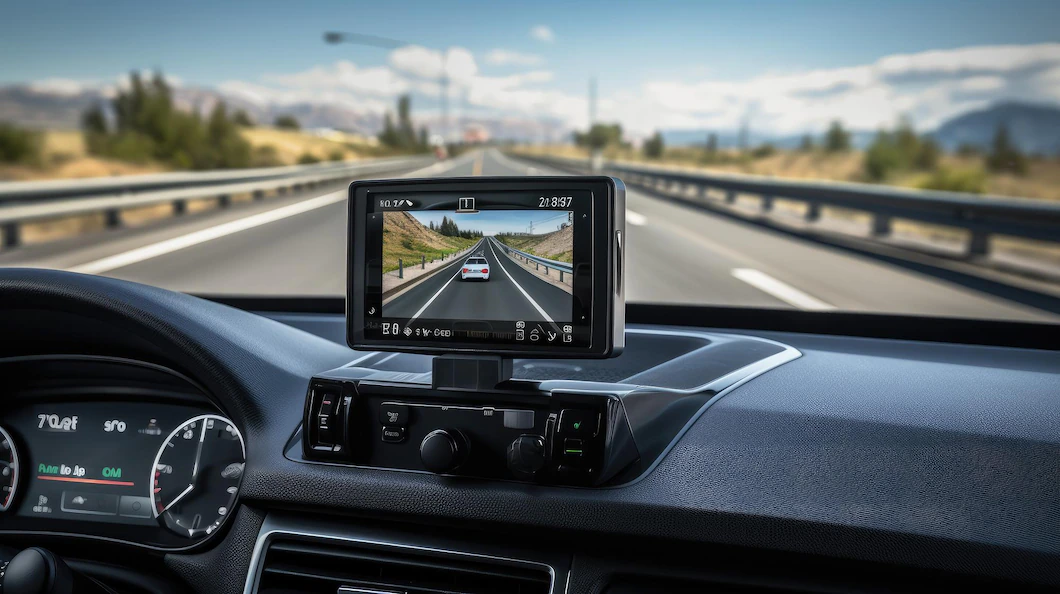The Rise Of Commercial Dash Cams: Balancing Safety And Privacy

In recent years, the emergence and rapid advancement of dashboard-mounted cameras, commonly known as dash cams, have significantly impacted the way we perceive road safety and privacy. But can commercial dash cams strike a balance between safety and privacy? Initially designed for law enforcement, dashcams have found their way into commercial and private vehicles, offering an array of benefits and raising important questions about surveillance and data security.
Harnessing Technology For Road Safety
The primary purpose of a dash cam is to record details of road incidents, providing irrefutable evidence in the case of accidents or disputes. This technology has proven invaluable for commercial vehicle operators.
The presence of a commercial dash cam not only encourages safer driving habits but also serves as a critical tool in insurance claims and legal proceedings. It’s a digital eyewitness that offers clarity in complex situations, often leading to quicker resolutions and fostering a culture of accountability on the roads.
Privacy Concerns Amidst Surveillance
However, the widespread adoption of dash cams also brings forth privacy concerns. While they contribute to safer roads, they simultaneously pose a risk of unwarranted surveillance. Dash cams constantly record footage, which might include private properties or individuals who have not consented to be filmed. This aspect of dash cams walks a fine line between public safety and personal privacy, a balance that is yet to be fully achieved.
Legal Landscape And Consumer Awareness
The legal implications of dashcam usage vary significantly across different states and countries. In some regions, strict laws regulate the use of recorded footage, whereas others have more relaxed guidelines. Consumers and commercial entities alike must stay informed about the legal framework surrounding dash cams to ensure they are not inadvertently breaching privacy laws. This knowledge is crucial in harnessing the benefits of dash cams while respecting individual privacy rights.
Ethical Considerations And Best Practices
There is more to the ethical use of dashcams beyond just legal compliance. The privacy of individuals who are captured in the footage must not be at stake. Further, there must be enough measures to maintain complete data privacy.
A fleet management company must set clear policies about people who can access a dashcam and how the footage captured in it can be used. In addition, when a passenger rides a commercial vehicle with a dashcam, they should receive messages and intimation.

Technological Innovations And Future Directions
With advancements in technology, commercial dash cams can redefine safety management in fleet operations. Already, features like live streaming, cloud-based storage, and advanced analytics are available to make the use of dash cams more beneficial. However, as these dashcams become more sophisticated, there should be more emphasis on developing ethical guidelines and regulations that protect individual or fleet privacy.
Having said that, AI dash cams are most in demand these days to protect driver safety and the safety and privacy of the fleet. These dashcams can easily detect unsafe driving patterns and they can send in-vehicle alerts to make them aware of speedy or risky driving. Naturally, these AI-enabled devices can reduce the risks of accidents.
These AI-enabled dashcams pick up triggers under the following conditions.
- An AI dashcam will store video footage and send a notification when a driver picks up speed, accelerates or corners the vehicle abruptly, or brakes the car unnecessarily.
- The camera will store footage when a driver is seen eating, smoking, or talking over the phone while driving. These are distractive driving behaviors.
- If a driver is trying to tamper with the camera or is not wearing the seatbelt, the dashcam will record footage and send immediate alerts.
- The dashcam will start functioning when anyone presses the panic button.
Things To Consider About the Best Commercial Dash Cams
An efficient fleet manager always tries to strike a balance between safety and privacy while using commercial dashcams. However, that’s not an easy road to take.
Keep the following things in mind when picking the best dashcam system and lay out the best policies.
Use Of Reliable Technology
The reliability of the technology used in your commercial dashcam is always a priority. You can only be sure of the sanctity of the footage recorded or alert shared if the technology is trustworthy. Further, it must have provisions for bypassing cyber attacks and threats of unauthorized access.
Make sure that your dashcam is durable and efficient, has a reliable storage method, and a smooth transmission system.
A Good Commercial Dashcam Must Be Scalable
A fleet used for commercial purposes will have evolving requirements. So, you will need a scalable dashcam that can cope with the changing demands of your fleet.
After interacting with a few developers of vehicle tracking and dashcam systems, I found out that customization and integration of the systems are the most challenging tasks for them. Scalability is a crucial factor in customizing a dashcam or vehicle-tracking system for real-time monitoring and maintaining safety and privacy.
In some cases, you may need additional cameras or more advanced software with specific features to meet your requirements.
The Dashcam You Choose Must Offer You Ease of Use
A dashcam must have an easy installation process. Further, it must operate without glitches and adapt to changes. On a more technical aspect, it must have intuitive software that enables proper monitoring of the fleet and convenient data retrieval.
A Balanced Road
Commercial dash cams take care of data privacy and safety in modern fleet management systems. Further, the captures in the dash cams function as valuable evidence in litigations or charges of compliance violation.
Striking a balance between the safety and privacy of sensitive data is crucial when using dashcams. The future of dash cams lies in this equilibrium, ensuring that our roads are safer without compromising our right to privacy.
What do you think about the use of commercial dashcams, and do you find them as effective as we think? Don’t forget to share your opinion with us!
Read Also:

























Leave A Reply